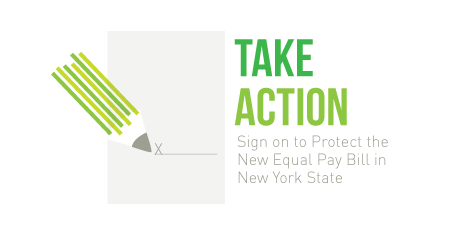The below revisions will be submitted on behalf of PowHer New York’s Equal Pay Campaign to the New York State Department of Labor.
Sign the letter on behalf of yourself or organization here.
If you need information about the letter and process, contact Beverly Neufeld, bev@powherny.org. Direct any legal questions to Lisa Lipman, lisalipmanesq@gmail.com
Special thanks to Lisa Lipman, Jan Goodman and A Better Balance for reviewing the proposed rules and crafting these recommendations.
Part 194 Pay Equity
Subpart -1 General Provisions
194-1.1
No employer shall prohibit an employee from inquiring about, discussing, or disclosing the wages of such employee or other employee, except as otherwise provided herein.
194-1.2 Definitions
For purposes of this part:
(a) The terms employee and employer shall be as those terms are defined in Section 190 of the Labor Law.
(b) Permission shall mean an authorization given voluntarily by an employee. A writing shall not be required.
194-1.3 Employer Imposed Limitations on the Inquiry, Discussion, and Disclosure of Wages
(a) If an employer seeks to limit the time, place, and manner for inquiring about, discussing, or disclosing wages, as set forth in Section 4(B) of the statute, such employer limitations must be in writing and distributed to every employee. An employer shall not impose restrictions on employees in such a way that unreasonably or effectively precludes or prevents inquiry, discussion, or disclosure of wages at the worksite and/or during work hours. An employer may prohibit an employee from discussing or disclosing the wages of another employee unless the other employee provides oral or written permission, either directly or indirectly. An employer may also limit an employee who has access to the wage information of other employees as a part of that employee’s essential job functions as set forth in Section 4(D) of the statute. An employer may not avail itself of the affirmative defense contained in Section 194(4) of the Labor Law, unless the employer can demonstrate that the written policy was provided to the relevant employee(s) in accordance with this Part. The employer must maintain copies of its written policies during the period of applicability and for six years following such period.
(b) An employer shall post the following notice where it posts other notices regarding statutory requirements, such as those pursuant to federal and state wage and hour laws and/or anti-discrimination laws:
“Under New York State Law, employees are permitted to inquire about, discuss, or disclose their own wages and those of any other employee who has given them written or oral permission to do so. An employer may establish some limitations on the time, place and manner for such inquiries, disclosure or discussion of wages if and only if: (1) the employer gives each of its employees a copy of its written policy explaining those limitations; and (2) the employer’s limitations do not unreasonably prevent or preclude employees from sharing wage information with other employees if they wish to do so; and (3) the employer’s limitations do not prevent or have the effect of preventing employees from inquiring, discussing and/or disclosing wages at the workplace and/or during work hours. An employer may also impose further restrictions on those employees who have access to the wage information of other employees as one of their core job functions, and such employees should check with the NYS Department of Labor as to those restrictions. Employees who believe that their employer’s policy and/or practice violates this law, and/or employees who believe that their rights under this law have been violated should contact the NYS Department of Labor at [phone].”
194-1.4 Federal and State Law
The provisions of this Part shall not be construed to diminish or waive any rights or obligations of any employee pursuant to any other law, regulation, or collective bargaining agreement.
194-1.5 Severability
If any provision of this Part or the application thereof to any person or circumstance is held invalid, such invalidity shall not affect other provisions or applications of this Part which can be given effect without the invalid provisions or applications. To this end, the provisions of this Part are declared to be severable.


